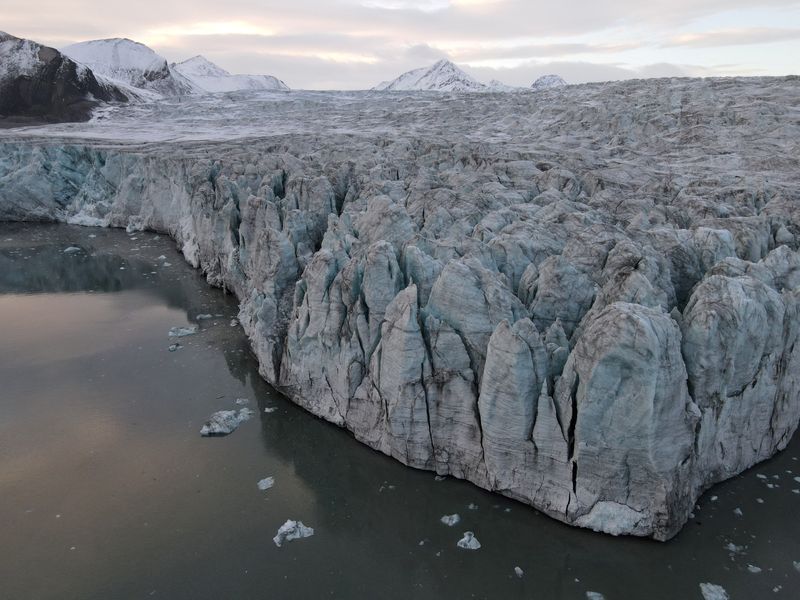By Nerijus Adomaitis and Gwladys Fouche
OSLO (Reuters) -Norway on Tuesday said it plans to offer energy firms a record number of oil and gas exploration blocks in the Arctic as it seeks to prolong its hydrocarbon production, while green campaigners criticised the risk to the environment.
The Nordic country, Europe's largest gas supplier and a major crude exporter, proposes to offer 78 blocks to energy firms in the Barents Sea, the highest number since the so-called APA licensing round began in 2003.
Oslo also plans to offer 14 new blocks in the Norwegian Sea, which spreads north of the North Sea and above the Arctic Circle, bringing the total number of blocks on offer to 92.
Last year, the government added only 28 blocks overall to the so-called APA licensing round.
"To facilitate new discoveries up north is important for Europe, the country and the region," Oil and Energy Minister Terje Aasland said in a statement.
Norway's push to keep producing oil and gas comes as energy firms are under contradictory pressures, with a need on the one hand to produce hydrocarbons that are not from Russia, and on the other to limit the effects of climate change.
The Barents Sea may contain two-thirds of the oil and gas yet to be discovered off Norway, according to Norwegian official estimates.
ICE (NYSE:ICE) EDGE
Waters close to the Arctic ice sheet are important feeding grounds for many species, from tiny zooplankton to polar bears and whales.
Greenpeace said most blocks on offer were "far north" in the Barents Sea, with some lying in what it said were areas where the ice sheet can sometimes reach during the year.
"The government is driving policy that is the enemy of nature and the climate," Greenpeace Norway said in a statement.
The Arctic ice sheet's surface grows in winter and shrinks in summer. Overall it has reduced in size over the years due to the effects of climate change, scientists have said.
A lawmaker from the leftwing Socialist Left (SV), which the minority coalition of Labour and the rural-oriented Centre Party need to pass legislation, said his party would "fight to stop or reduce" the proposal.
"The government still thinks Norway should be one of the leading countries in exporting pollution and fossil fuels to the rest of the world," tweeted SV lawmaker Lars Haltbrekken. "This is the opposite of what the climate crisis needs as a response."
SV in November negotiated with the cabinet that there would be no licensing round in frontier areas, the so-called numbered licensing round, during the life of the current parliament which ends in 2025.

But that deal does not stop the government from offering licenses to oil firms in the separate APA licensing round, meant to offer areas with well-known geology or near existing infrastructure.
At the time Oil Minister Aasland said that "the importance of the numbered rounds has decreased over the years", and that what mattered for maintaining activity was the APA round.